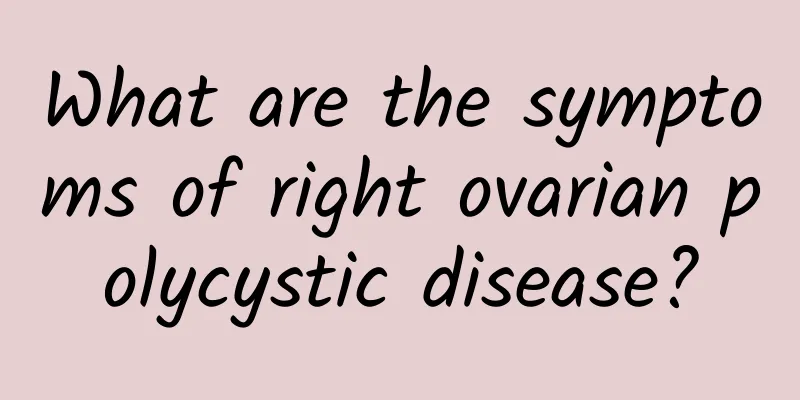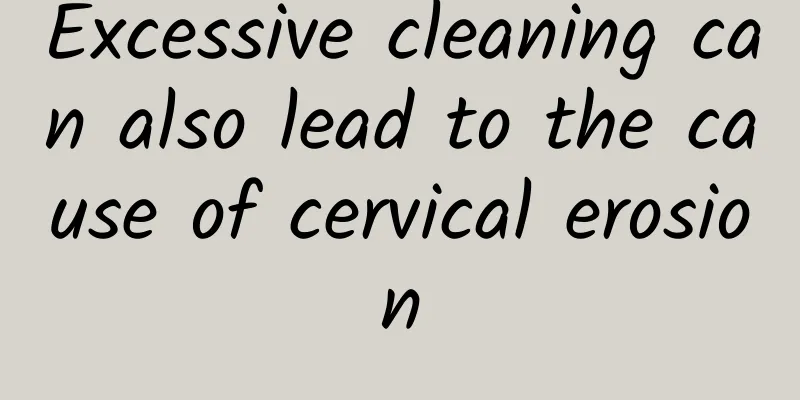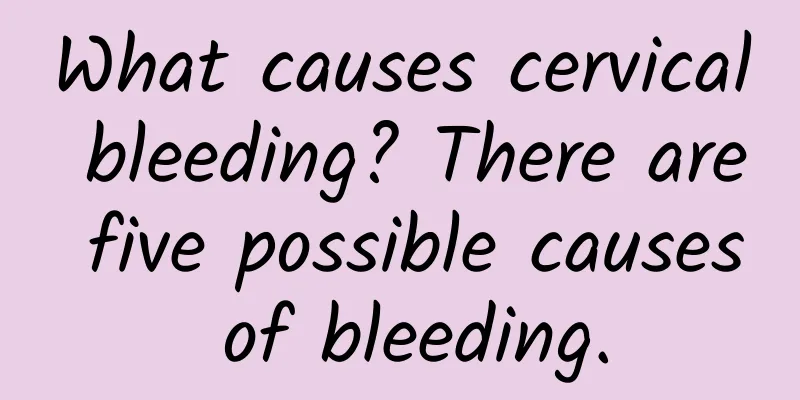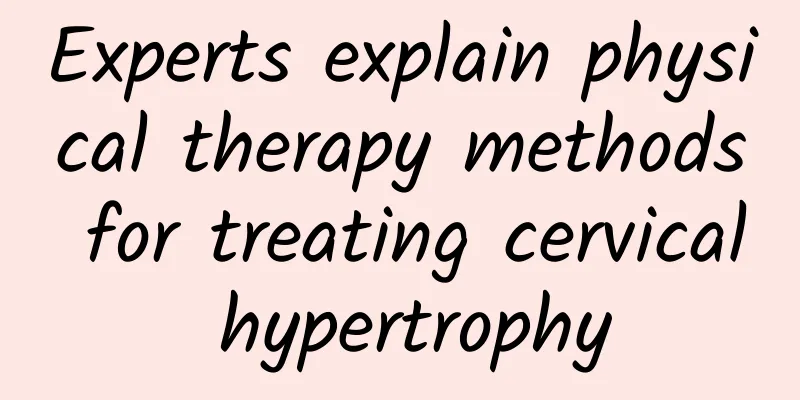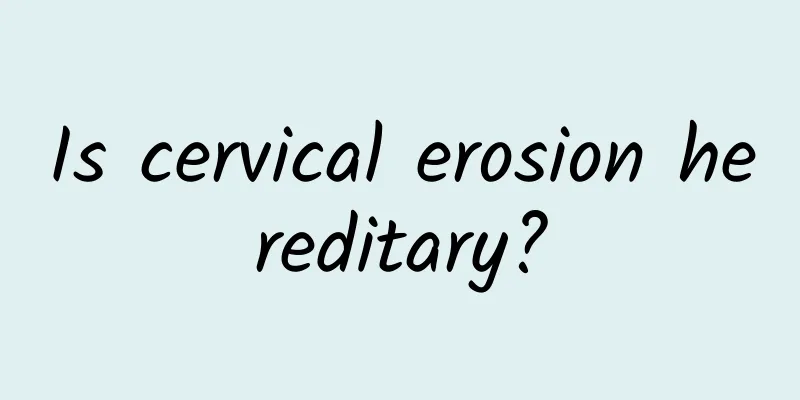What causes uterine cysts? Do they need treatment?
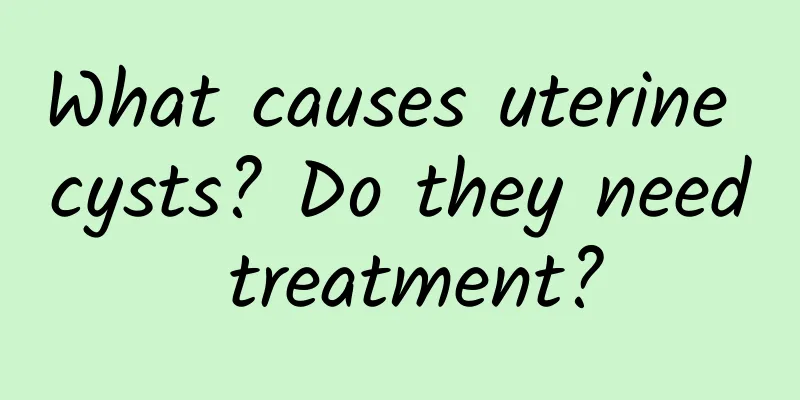
|
The formation of uterine cysts is mostly related to factors such as hormone imbalance, inflammatory infection and tissue lesions. Whether treatment is needed depends on the type of cyst and the severity of the symptoms. Mild cysts can be observed regularly, while more severe ones require drug treatment or surgical intervention. 1. Genetic factors Some women may have abnormal hormone secretion due to family inheritance, which increases the risk of cysts. In this case, regular gynecological examinations are necessary, especially for those with a family history of the disease. Regular monitoring can detect potential problems in time, thereby preventing cysts from expanding or becoming diseased. 2 Environmental factors External factors Pathogenic factors in the living environment, such as long-term exposure to chemicals, bad work and rest habits, and unbalanced diet, may induce hormonal disorders in the body, which in turn cause cysts. Not paying attention to the cleanliness of the reproductive organs or frequently using irritating cleaning products may lead to infection and worsen the condition. It is recommended to maintain a healthy lifestyle, avoid contact with harmful environments, and choose non-irritating cleaning products. 3. Physiological factors and personal factors Another major cause of cysts is an imbalance of estrogen and progesterone in women. This imbalance may be related to polycystic ovary syndrome or menstrual disorders. For such problems, it is recommended to supplement the necessary nutrients by adjusting the diet structure, such as consuming more foods rich in vitamins and phytoestrogens, and if necessary, hormone regulation therapy can be used under the guidance of a doctor. 4. Trauma or surgery Multiple abortions, delivery surgeries, or endometrial manipulations may damage uterine tissue and induce cysts. Using an inappropriate intrauterine contraceptive ring may also cause long-term irritation and increase the risk of cyst formation. Avoiding unnecessary surgical procedures and choosing regular medical institutions are important ways to reduce the risk. 5 Pathological factors Caused by the disease itself Certain gynecological inflammations such as pelvic inflammatory disease, cervical erosion or hormone-related diseases such as endometriosis may further develop into cysts. For such cysts, drug treatment is usually required, such as antibiotics to treat infection or hormone drugs to regulate endocrine. If the cyst is too large or the drug is ineffective, surgical treatment may be considered, such as ovarian cyst removal or transvaginal cyst drainage. Treatment and recommendations Depending on the type of cyst and symptoms, appropriate treatment is given: Drug treatment: Commonly used anti-inflammatory drugs such as cephalosporin antibiotics to treat infection, or short-term hormone drugs to regulate hormone levels. Surgical treatment: More serious cases may require surgery, such as cystectomy or hysterectomy, but it depends on the severity of the condition. Lifestyle intervention: Adjust your diet, eat more fresh fruits and vegetables, avoid spicy and overly greasy foods, control your weight and do moderate exercise, such as yoga and brisk walking. If the uterine cyst is small and has no obvious symptoms, there is no need to rush to treat it, but regular observation and follow-up treatment instructions are required. If the cyst causes pain, irregular bleeding, or affects menstruation, you should see a doctor immediately to avoid delaying the condition. In terms of prevention, maintaining a healthy weight, regular physical examinations, avoiding unclean sex, and adequate nutrition are all important. |
<<: Urine bleeding in the elderly after menopause
Recommend
Treatment of ovarian cysts with integrated Chinese and Western medicine
Ovarian cysts are common gynecological diseases i...
Practicing yoga can relieve menstrual cramps in women
Yoga is an aerobic exercise that helps you cultiv...
Will cervical warts definitely recur?
After suffering from cervical warts, you must see...
What are uterine fibroids? How to treat uterine fibroids
Uterine fibroids are common tumors of the female ...
Experts explain the high-risk groups for candidal vaginitis
As a gynecological disease that seriously harms w...
Will cervical warts heal on their own?
Research and surveys have shown that the chances ...
How can cervical erosion heal itself? What are the important factors that determine whether cervical erosion can heal itself?
Cervical erosion is a phenomenon that many women ...
My period has stopped for half a year. Why is it coming back?
My menstruation has stopped for half a year. What...
Not only can it help you stay alert! Eating vitamin B supplements like this will help you become thinner
Trying to avoid certain foods but still gaining w...
Dysmenorrhea caused by a heavy rain
It seems that there is a lot of rain this year. M...
Eat only until you are 60% full and only eat fruit in the morning. Tiffany Hsu shares the key secrets to maintaining a good figure
Tiffany Hsu has tried many weight loss methods al...
How much is the cost of uterine fibroid surgery? What are the factors that affect the cost of uterine fibroid surgery?
Although uterine fibroids are not an incurable di...
What are the causes of pelvic inflammatory disease in women?
The occurrence of female pelvic inflammatory dise...
Which patients with ectopic pregnancy are suitable for surgical treatment?
Which patients with ectopic pregnancy are suitabl...
What are the dangers of amenorrhea in women?
Menstruation is a physiological condition unique ...
